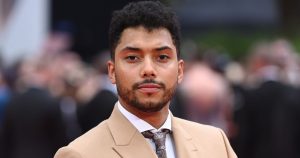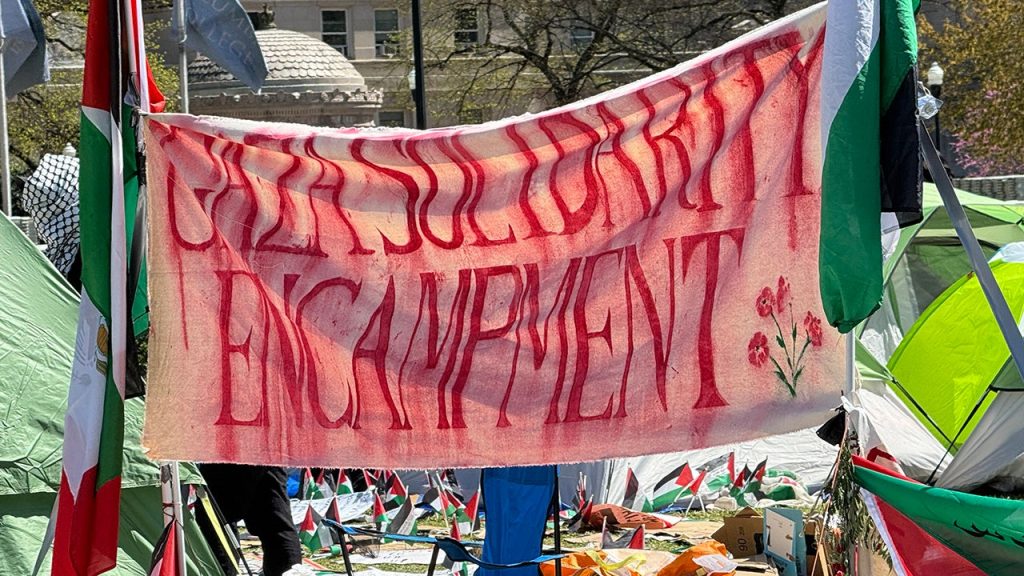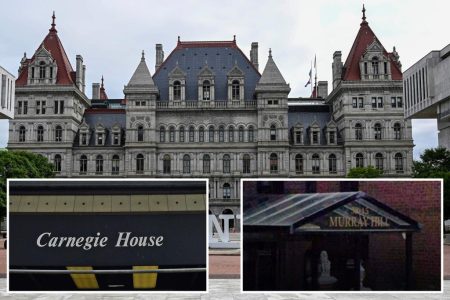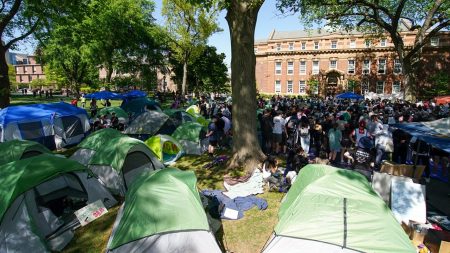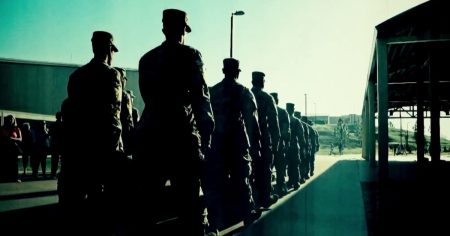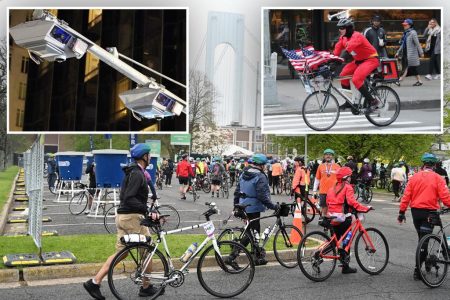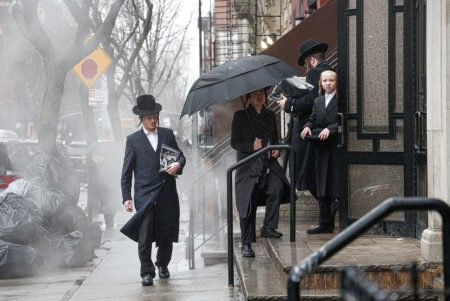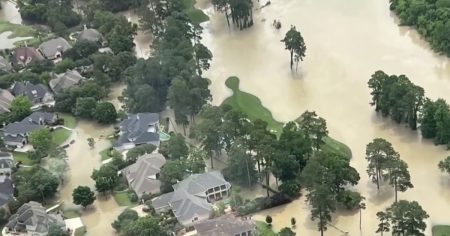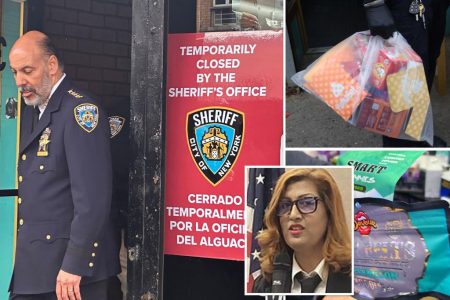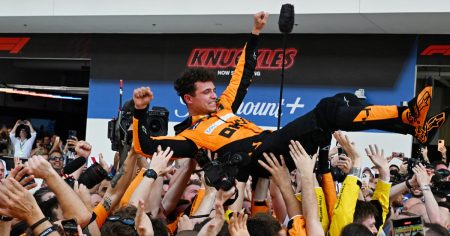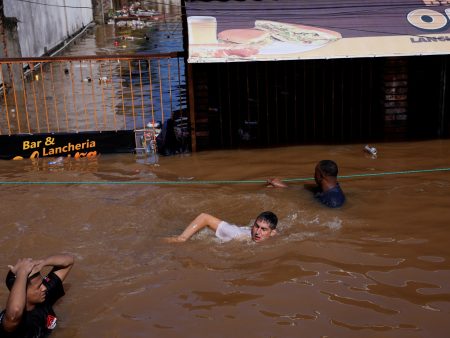Columbia University in New York set a deadline for administrators and anti-Israel protesters to reach an agreement to end the encampment on campus, as a police presence stands by. University President Minouche Shafik initially set a deadline of midnight for an agreement that must include dismantling the encampment, dispersing, and following university policies. If discussions are unsuccessful, administrators would have to consider alternative options for clearing the West Lawn, so that students can complete the term and graduate. The university has already moved to hybrid learning for the remainder of the semester over safety concerns sparked by the protest.
Around the expiration of the midnight deadline, a student demonstrator announced that administrators had extended the negotiation deadline to 8 a.m. There was a 48-hour window for negotiations with four main agreements: students removing a significant number of tents, only Columbia students protesting, compliance with safety implications, and prohibiting discriminatory or harassing language. Demonstrators said they would not continue to negotiate without a written commitment that the administration would not use the NYPD or the National Guard on students. Governor Kathy Hochul stated that she had no plans to call in the National Guard, but the NYPD had riot police and a counterterrorism unit standing by overnight.
Demonstrators began to dismantle tents on the South Lawn ahead of the initial midnight deadline. Some demonstrators relocated to Furnald Lawn, while others remained on the South Lawn. Shortly after midnight, demonstrators started moving the tents back onto the South Lawn. The deadline for an agreement comes days after the police were authorized to clear the encampment, leading to over 100 arrests. Shafik emphasized that intimidating, harassing, or discriminatory behavior would not be tolerated and protesters found violating policies would undergo disciplinary processes. She highlighted the importance of the right to protest at Columbia, but reiterated that harassment and discrimination were contrary to the university’s values.
The negotiations included agreements on dismantling tents, only including Columbia students in the protest, complying with safety implications, and prohibiting discriminatory language. The university prompted a 48-hour window for discussions after extending the initial deadline to 8 a.m. Demonstrators insisted on a written commitment from the administration that NYPD or the National Guard would not be involved in the protest. Governor Hochul assured that there were no plans to call in the National Guard, but the NYPD had riot police and counterterrorism units on standby. Demonstrators were warned to keep noise down and avoid aggressive behavior to avoid arrest.
Following the initial deadline, demonstrators started moving tents back to the South Lawn after relocating some tents to Furnald Lawn. The deadline for an agreement followed the authorization to clear the encampment and resulted in several arrests. Shafik emphasized the importance of the right to protest at Columbia while stating that discriminatory and harassing behavior would not be tolerated. Demonstrators were urged to comply with university policies and expectations throughout the negotiations. As discussions continued, the campus remained tense with a police presence standing by.
Shafik’s message to the university community emphasized the need to restore calm to campus in order for students to complete the term and graduate. The university had already transitioned to hybrid learning for the rest of the semester due to safety concerns arising from the protests. Demonstrators were instructed to remove a significant number of tents, ensure that only Columbia students were protesting, comply with safety implications, and prohibit discriminatory language. Negotiations ensued with an extended deadline, during which demonstrators sought a commitment that law enforcement would not be involved in handling the protest. Governor Hochul confirmed that the National Guard would not be called in, but the NYPD had riot police and counterterrorism units on standby.


